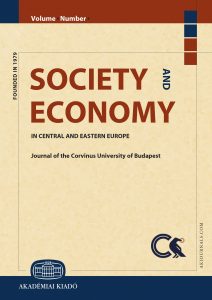-
Publication Date: 18 Aug 2023
Abstract
Multinational companies in the fashion industry operate on a global level. Fashion was one of the first industries that outsourced production to developing countries and allowed exploitation and environmental pollution to remain hidden. But concerns regarding the industry’s (un)sustainability are rising, regarding both the environmental and the social aspects. Fashion consumption is on the rise and the industry is among the most polluting ones. With this paper, I join the debate on how to force fashion MNCs to operate sustainably. There are two opposing views on where change should come: from above (regulation) or from below (change in customer habits and the activity of sustainable fashion NGOs). According to one view, fashion is underregulated and only legislation can be a solution: MNCs will only operate sustainably if they are forced by law. The other group claims that customers should drive green initiatives as their demand catalyzes MNC production. I claim that neither side is enough, as sustainability is not necessarily the number one consideration for customers or policymakers. In this conceptual paper, I use document analysis as a qualitative approach, and descriptive statistics to support my position.
- Keywords: fashion industry; outsourcing; sustainability; regulation; non-governmental organizations; consumption
-
Tamás Gáspár, Magdolna Sass, Krisztián Koppány, and Shulei Bi
Publication Date: 18 Aug 2023
AbstractTrade analysis for open economies is strategically important. Even though Hungarian trade relations are oriented towards the EU, the direct and indirect influence of Asia, mainly China, needs special attention. The paper focuses on direct bilateral relations between Hungary and China. The global value chain perspective enables the research to detect inter- and intra-industry dependencies and unfold and compare the industry focuses and dynamics of backward and forward linkages between 2000 and 2018. We used a mixed methodology, combining input-output analysis with company case studies based on a wide range of literature both from Chinese and East-Central European researchers. The findings support the significance of global value chain relations, highlight the restructuring of Hungarian trade relations with China over the past twenty years, and indicate the strong concentration of relations in terms of the number of companies.
- Keywords: global value chains; input-output analysis; China; Hungary; case study
Eva Křenková, Petr Procházka, and Gábor TúryPublication Date: 31 Jul 2023
AbstractThis research investigates the proactive and reactive measures applied by Czech and Hungarian automotive companies following Russia’s invasion of Ukraine. We apply a qualitative methodology and analyse interviews with company managers to learn about the applied measures. The results reveal that the resilience gained during the COVID-19 pandemic involved proactive measures, which companies have kept in place. Reactive measures involved production replanning and alternative transportation. Adopting multiple sourcing strategies in the automotive sector is limited and more reactive rather than proactive. The important antecedents of agility are information sharing and cooperation within multinationals.
- Keywords: supply chain management; Czechia; Hungary; automotive industry; agility
- Keywords: global value chains; input-output analysis; China; Hungary; case study



